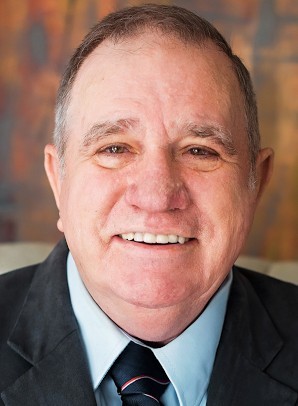NSPE PE Institute
Ethics of Sustainable Design
Engineers build things that last. Wilson Dam was built in 1924; it provides flood control and cheap, renewable electricity today. Unfortunately, much of what has been built in the last 50 years was constructed on the “low-bid” concept—just build it cheap, and let someone else worry about operating costs. We need to reconsider this business model and look to the costs future generations will have to pay. The American Society of Civil Engineers (ASCE), the National Society of Professional Engineers (NSPE), and the American Institute of Architects (AIA) all have codes of ethics that more or less address the issue of sustainability—the burden we leave for future generations. By carefully considering sustainability, we can design projects that are safe, useful, and easy for future engineers to operate. Consider the triple bottom line, balancing economy, sustainability, and people.
Attendees will learn to design works that, by carefully considering sustainability, we can design projects that are safe, useful, and easy for future engineers to operate. Consider the triple bottom line, balancing economy, sustainability, and people.
Engineers build things that last. Wilson Dam was built in 1924; it provides flood control and cheap, renewable electricity today. Unfortunately, much of what has been built in the last 50 years was constructed on the “low-bid” concept—just build it cheap, and let someone else worry about operating costs. We need to reconsider this business model and look to the costs future generations will have to pay. The American Society of Civil Engineers (ASCE), the National Society of Professional Engineers (NSPE), and the American Institute of Architects (AIA) all have codes of ethics that more or less address the issue of sustainability—the burden we leave for future generations. By carefully considering sustainability, we can design projects that are safe, useful, and easy for future engineers to operate. Consider the triple bottom line, balancing economy, sustainability, and people.
Attendees will learn to design works that, by carefully considering sustainability, we can design projects that are safe, useful, and easy for future engineers to operate. Consider the triple bottom line, balancing economy, sustainability, and people.

Archibald Albert Morton, P.E.
Morton is a registered professional civil engineer and a certified energy manager. He graduated Auburn Bachelor's of Civil Engineering degree in 1966 and continued graduate studies at Louisiana State University, the Army Logistics Management Center, and the Army Command & General Staff College. He retired from the US Army Corps of Engineers as a lieutenant colonel. He was a “Master Trainer” for the US Army Aviation and Missile Command’s Total Quality Management program. He is now the Chief Engineer for Energy Solutions Group and the President of the Alabama Solar Association. He was named the 2008 Alabama Solar Professional of the Year.
Key:
| Access Date | Quiz Result | Score | Actions |
|---|
Ensuring Education Credit Compliance
Individuals are responsible for ensuring compliance with state PDH/CPD/CE requirements. Consult your state licensing board for more information.
Accessing Webinars
To view purchased webinars, make certain you are logged in with your NSPE credentials. Once logged in, select My Registered Webinars. Next, select the webinar you intend to view. For live webinars, select the green Play button to join. For past events, select Webinar in the right-hand column and then View Archived Recording.
Not a Member?
Join NSPE today and gain access to a vast library of on-demand webinars and receive discounts on live and on-demand webinars. JOIN NOW
Upcoming Continuing Education Events Across the NSPE Federation
NSPE maintains a calendar of upcoming, live national and state educational events. Please search the calendar or learn how to submit an event to be added.
Need help?
Thank you for visiting the PE Institute.
For assistance contact: education@nspe.org